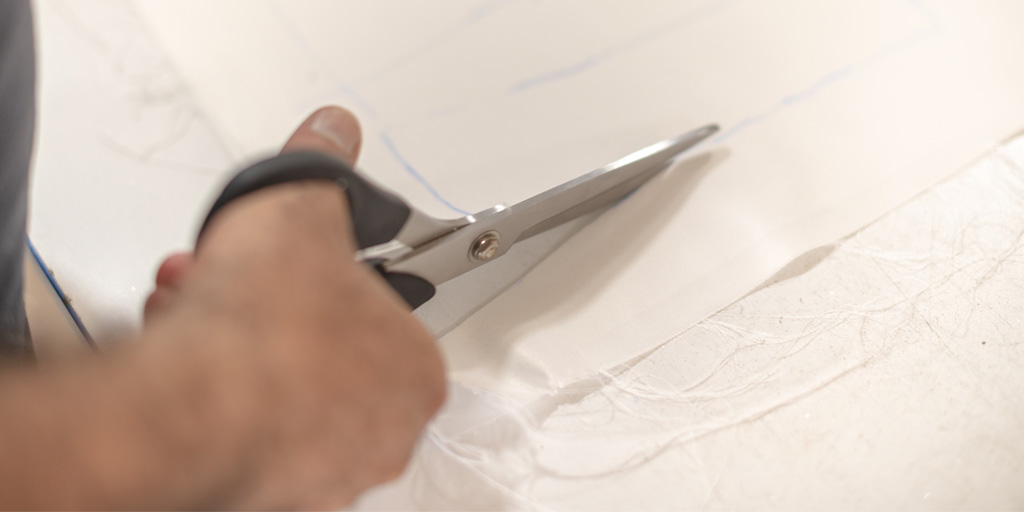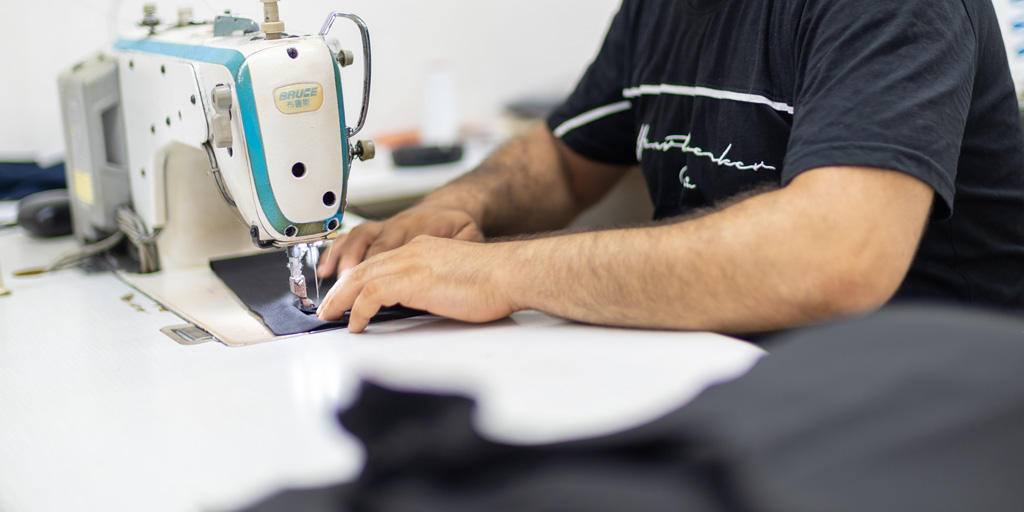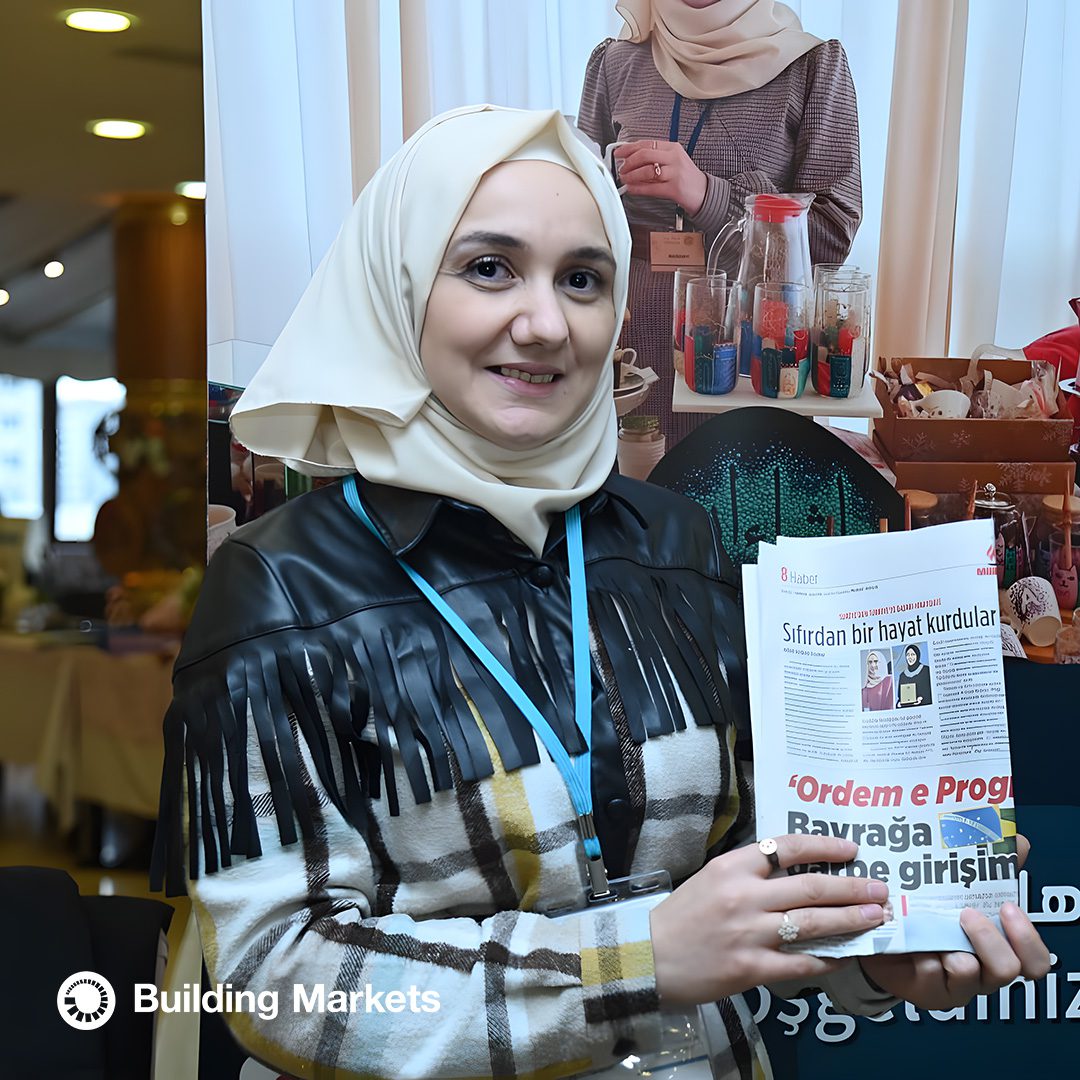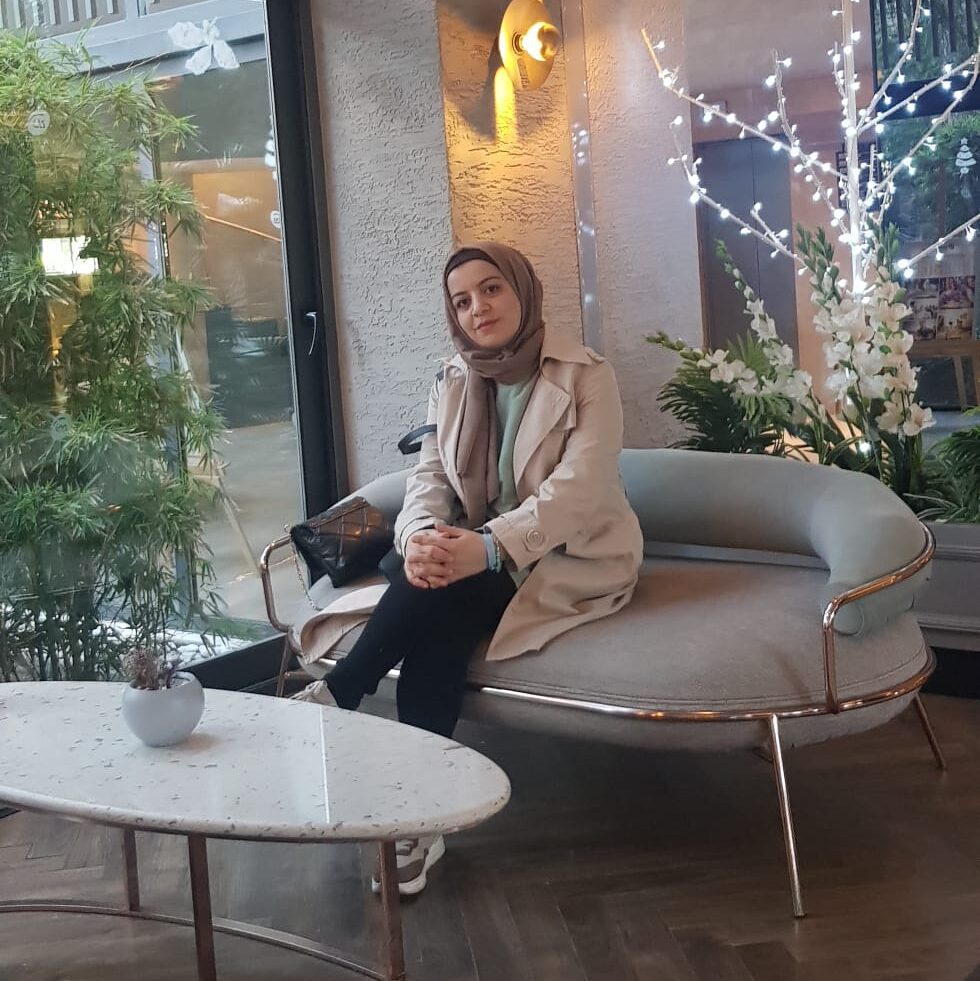Wedour Emily Freeman has big ideas. She owns and operates Bravo-Sister Enterprise, a business that produces and packages gari (also known as tapioca), flour made from ground cassava tubers, and other cassava products. Currently, Emily supplies local markets but, with support from Building Markets’ USAID Sustainable Marketplace Initiative-Liberia (SMI-L), she plans to export her goods to other countries on a regular basis.
Emily established Bravo-Sister Enterprise in 2012 and it was one of the first businesses Building Markets verified in Liberia and registered on the SMI-L Supplier Directory. In 2013, she began processing gari and fufu, another Liberian staple made with cassava flour, and manufacturing charcoal. She didn’t have a place for her business but instead operated out of her house. Around this time, she met an employee at the U.S. Embassy, which led to a two-year contract to supply food for those working on the new Embassy building.

Emily continued to reinvent her outreach strategies to target new customers, including free deliveries and samples of cassava pastries. She participated in the first Ministry of Commerce and Industry MSME Conference and Trade Fair, an event supported by Building Markets, which brought more attention to her business and products. During the Ebola Virus Disease (EVD) crisis she supplied hospitals and EVD centers with super gari, a mix of gari and micronutrients such as ground moringa leaves, which are high in protein, vitamins, minerals and antioxidants.
Emily has taken advantage of Building Markets training opportunities in General Procurement and Customer Service and frequently stops by the Tender Distribution Point. After operating out of a shop for a couple years, Emily is back to working from her house while construction on her cassava processing factory and warehouse, located in Margibi County, is finalized. She hopes the factory will be running by the end of March 2016 and plans to send all her employees to Building Markets for training. Most recently, she came to Building Markets for assistance in putting together a grant proposal.
“I wanted [Building Markets] to review it but because I’ve taken training on proposals with Building Markets, it was already close to perfect,” she says. Her ability to articulate her business vision through proposals helped her earn a spot in the Branson Scholarship Program, designed to develop entrepreneurs and accelerate a viable private sector-led economy in Liberia.
Emily is always looking for new ways to diversify her business and bring her products to a wider market. When reading about breadfruit and its nutritional value, she discovered that breadfruit flour can be processed with the same methods as cassava flour. She began doing so and was shipping her breadfruit flour to Kenya until the EVD crisis. She hopes to start exporting again soon, as well as introducing it to the Liberian market. Emily is also experimenting with different sizes of packaging, priced accordingly, to see which sell faster.
“The smaller containers are more affordable. I want even the poor man to get a hold of gari,” she says of her strategy.
Emily named her business “Bravo-Sister” in honor of her sister who lent her money when Emily first decided to go into business. With her sister’s encouragement, her own vision and the support of Building Markets, Emily will continue to pursue her big ideas and see her business grow.
More from this author -
Latest News -

PDT – First Annual Plan of Action
Uncategorized


New assistance for local businesses available from Peace Dividend Trust
Uncategorized





![[Press Release] Building Markets Awarded Grant from the Nasdaq Foundation to Empower Women Entrepreneurs in Colombia](https://buildingmarkets.org/wp-content/uploads/2024/03/Nasdaq-Partnership-Announcement-2.jpg)